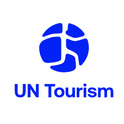New Report Shows Value Of IP To The Tourism Sector
A new report published jointly by WIPO and the World Tourism Organization (UNWTO) on the value of intellectual property in boosting tourism shows how the IP system creates a favorable ecosystem for innovation, entrepreneurship and investment in the sector.
The publication, entitled "Boosting Tourism Development through Intellectual Property," highlights good practices, features case studies and recommendations for policymakers and other tourism stakeholders on how to ensure that creativity, innovation, traditions and cultural heritage in tourism are properly protected and commercialized and that the benefits are shared by all.
In a joint Foreword, WIPO Director General Daren Tang and UNWTO Secretary General Zurab Pololikashvili, predict that while the tourism sector has taken a hit during the COVID-19 pandemic, it will recover and "contribute to reigniting hard-hit economies and societies thanks to its capacity to adapt to changes and offer innovative solutions to new challenges."
"In this context, IP rights are powerful tools that can be used to boost tourism development and competitiveness. The IP system is designed to promote creativity and innovation and support efforts by individuals, businesses and other actors to differentiate themselves and their products and services in the marketplace, whether through trademarks, geographical indications, copyrights or patents," they added.
The publication provides practical guidance for non-IP specialists on how to include IP in tourism product development – from destination branding to tourism policies. It shows how different IP rights can be leveraged to raise funds. And it showcases successful experiences and demonstrates how stakeholders around the globe are using IP rights to add value to tourism services and products, as well as to protect and promote local knowledge, traditions and cultural heritage.
Through examples of producing cheese, tea, pepper, wine or other products, the publication shows how geographical indications and appellations of origin can be used to support the growth of rural tourism and provide benefits to local communities.
To leverage the full potential of the IP system, the report recommends inclusion of IP strategies in national tourism plans and tourism policy strategy for regional and local destinations. Not only does good IP knowledge and management help to make use of the protected intangibles, but it also attracts investments and leverages fundraising opportunities.
Finally, tourism authorities are encouraged to raise awareness among tourism and destinations stakeholders on the importance of appropriate IP knowledge and management to foster the sector's growth in these challenging times.
About UN Tourism
The World Tourism Organization (UN Tourism) is the United Nations agency responsible for the promotion of responsible, sustainable and universally accessible tourism.
As the leading international organization in the field of tourism, UN Tourism promotes tourism as a driver of economic growth, inclusive development and environmental sustainability and offers leadership and support to the sector in advancing knowledge and tourism policies worldwide.
Our Priorities
Mainstreaming tourism in the global agenda: Advocating the value of tourism as a driver of socio-economic growth and development, its inclusion as a priority in national and international policies and the need to create a level playing field for the sector to develop and prosper.
Promoting sustainable tourism development: Supporting sustainable tourism policies and practices: policies which make optimal use of environmental resources, respect the socio-cultural authenticity of host communities and provide socio-economic benefits for all.
Fostering knowledge, education and capacity building: Supporting countries to assess and address their needs in education and training, as well as providing networks for knowledge creation and exchange.
Improving tourism competitiveness: Improving UN Tourism Members' competitiveness through knowledge creation and exchange, human resources development and the promotion of excellence in areas such as policy planning, statistics and market trends, sustainable tourism development, marketing and promotion, product development and risk and crisis management.
Advancing tourism's contribution to poverty reduction and development: Maximizing the contribution of tourism to poverty reduction and achieving the SDGs by making tourism work as a tool for development and promoting the inclusion of tourism in the development agenda.
Building partnerships: Engaging with the private sector, regional and local tourism organizations, academia and research institutions, civil society and the UN system to build a more sustainable, responsible and competitive tourism sector.
Our Structure
Members: An intergovernmental organization, UN Tourism has 160 Member States, 6 Associate Members, 2 Observers and over 500 Affiliate Members.
Organs: The General Assembly is the supreme organ of the Organization. The Executive Council take all measures, in consultation with the Secretary-General, for the implementation of the decisions and recommendations of the General Assembly and reports to the Assembly.
Secretariat: UN Tourism headquarters are based in Madrid, Spain. The Secretariat is led by the Secretary-General and organized into departments covering issues such as sustainability, education, tourism trends and marketing, sustainable development, statistics and the Tourism Satellite Account (TSA), destination management, ethics and risk and crisis management. The Technical Cooperation and Silk Road Department carries out development projects in over 100 countries worldwide, while the Regional Departments for Africa, the Americas, Asia and the Pacific, Europe and the Middle East serve as the link between UN Tourism and its 160 Member States. The Affiliate Members Department represents UN Tourism's 500 plus Affiliate members.
UNWTO Communications Department
+34 91 567 8100
UN Tourism
